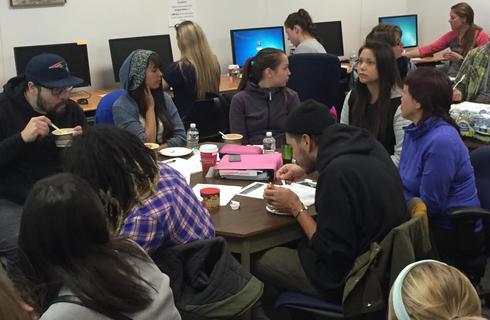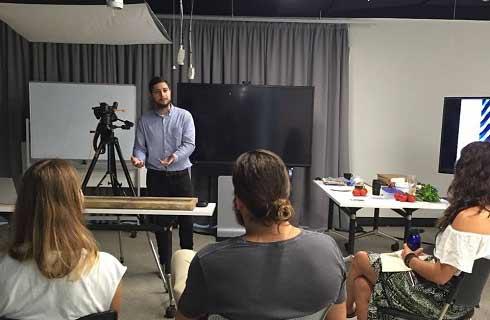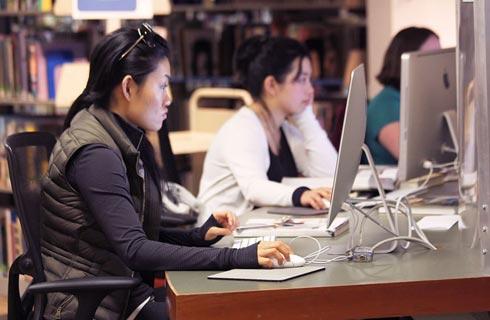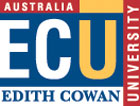媒体与传播学士-广播
Bachelor of Media and Communications - Broadcasting

学历文凭
Bachelor Degree

专业院系

开学时间

课程时长

课程学费

国际学生入学条件
IDP—雅思考试联合主办方

雅思考试总分
6.0
- 雅思总分:6
- 托福网考总分:70
- 托福笔试总分:550
- 其他语言考试:Pearson Test of English (PTE)- PTE Academic 52, with no scores less than 50 for courses with a current requirement of Academic IELTS 6.0. WAUFP- 50% plus pass in ELACS. GCE O Levels- Grade C or better
CRICOS代码: 086322D
申请截止日期: 请与IDP联系 以获取详细信息。
课程简介
Provides an introduction to contemporary broadcast media, including conventional radio and television, as well as web-based and mobile technologies. The major equips students with key concepts, skills, attitudes and values required by broadcasters in the digital age. A key characteristic of the major is the development of critical appraisal skills, as applied in broadcasting, to varying degrees across all units. The ability to generate ideas is a cornerstone of the major, for example, editorial decision-making and identifying suitable interviewees. Students will examine a wide range of issues and learn to contextualise content for broadcast. Broadcasting is responsive to the news cycle, which may include content associated with the development of cross-cultural and international outlook. This includes addressing indigenous cultural issues. The major has been developed in consultation with industry, and a strong feature is an ongoing relationship with the broadcasting community. This includes continued consultation with broadcast employers and revision of unit content to match industry requirements. All tutors and lecturers are professional broadcasters or journalists. The acquisition of high-level oral and written English language knowledge and skills is an essential element of this major. Work produced by broadcasting students can provide information to benefit the wider community by being published or broadcast.
相关申请
 预科
预科 奖学金
奖学金 实习机会
实习机会 在校学习
在校学习 跨境学习
跨境学习 校园授课-线上开始
校园授课-线上开始 在线/远程学习
在线/远程学习
开学时间&学费
学费信息仅供参考,请与IDP联系以获取详细信息
| 开学时间 | 时长 | 学费 | 地点 |
|---|---|---|---|
| 暂无 | 暂无 | 暂无 | 暂无 |
学校排名

世界排名501
数据源:
泰晤士高等教育世界大学排名
关于伊迪斯科文大学

埃迪斯科文大学(ECU)创建于1991年,是澳大利亚一所现代化的院校,因开设具有超前思维的先进课程而闻名,致力于帮助其学生为满足未来社会的需求做好充分准备。在''2024年优秀大学指南''(Good Universities Guide)中,该校的教学质量被评为五星级。该校已连续17年获得此成绩。埃迪斯科文大学位于西澳大利亚州首府珀斯,因规模庞大的古岩层景观、世界一流的酒庄和数千英里有着温暖清澈海水的沙滩而闻名。这是一座充满活力的城市,经济发展迅速,有大量旅游胜地和活动供学生去探索。埃迪斯科文大学开设有250多门课程。该校与专业合作伙伴共同开发了这些课程,确保课程内容始终与行业需求相关。许多课程包含职业模块、实习和小组项目,培养学生优秀的批判思考能力,使该校毕业生受到未来雇主的青睐。埃迪斯科文大学还因提供必要的支持服务而闻名,旨在确保其3.1万名学生的学术能力和个人能力得到全面发展。该校提供奖学金和助学金,还有一个积极活跃的学生会。学生会经常举办社交活动,并成立了很多俱乐部和社团,学生可以自由选择参加。该校营造了一个热情的学生社区,拥有由来自100多个国家的约6000名国际学生组成的充满活力的多样化学生群体,国际学生满意度指标得分很高。
本校相关课程

理学学士(物理学)荣誉
学历文凭
Bachelor Degree with Honours
开学日期
课程费用总额


文学士(艺术管理)
学历文凭
Bachelor Degree
开学日期
课程费用总额


教育领导力研究生证书
学历文凭
Graduate Certificate
开学日期
课程费用总额


公共卫生研究生文凭
学历文凭
Graduate Diploma
开学日期
课程费用总额


工程科学学士
学历文凭
Bachelor Degree
开学日期
课程费用总额


语言病理学学士
学历文凭
Bachelor Degree
开学日期
课程费用总额

其他相关课程

传播学学士(新闻学)
 悉尼科技大学
悉尼科技大学学历文凭
Bachelor Degree
开学日期
课程费用总额


数字媒体与传播学士学位
 威斯敏斯特大学
威斯敏斯特大学学历文凭
Bachelor Degree with Honours
开学日期
课程费用总额


MA Digital Media and Society
 卡迪夫大学
卡迪夫大学泰晤士高等教育世界大学排名:204
学历文凭
Masters Degree (Taught)
开学日期
课程费用总额


电影,电视和广播文学(荣誉)文学士学位(基础入学)
 中央兰开夏大学
中央兰开夏大学学历文凭
Bachelor Degree with Honours
开学日期
课程费用总额


新闻,媒体和英语文学(荣誉)文学士学位
 卡迪夫大学
卡迪夫大学泰晤士高等教育世界大学排名:204
学历文凭
Bachelor Degree with Honours
开学日期
课程费用总额


新闻学学士-国际研究学士
 伍伦贡大学
伍伦贡大学泰晤士高等教育世界大学排名:247
学历文凭
Dual Degree
开学日期
课程费用总额










